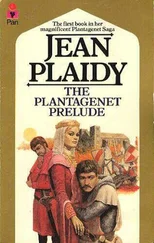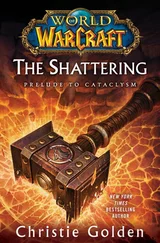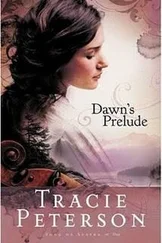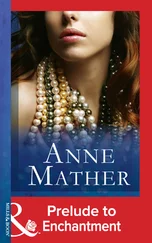Gerald Kersh - Prelude To A Certain Midnight
Здесь есть возможность читать онлайн «Gerald Kersh - Prelude To A Certain Midnight» весь текст электронной книги совершенно бесплатно (целиком полную версию без сокращений). В некоторых случаях можно слушать аудио, скачать через торрент в формате fb2 и присутствует краткое содержание. Жанр: Старинная литература, на английском языке. Описание произведения, (предисловие) а так же отзывы посетителей доступны на портале библиотеки ЛибКат.
- Название:Prelude To A Certain Midnight
- Автор:
- Жанр:
- Год:неизвестен
- ISBN:нет данных
- Рейтинг книги:3 / 5. Голосов: 1
-
Избранное:Добавить в избранное
- Отзывы:
-
Ваша оценка:
- 60
- 1
- 2
- 3
- 4
- 5
Prelude To A Certain Midnight: краткое содержание, описание и аннотация
Предлагаем к чтению аннотацию, описание, краткое содержание или предисловие (зависит от того, что написал сам автор книги «Prelude To A Certain Midnight»). Если вы не нашли необходимую информацию о книге — напишите в комментариях, мы постараемся отыскать её.
Prelude To A Certain Midnight — читать онлайн бесплатно полную книгу (весь текст) целиком
Ниже представлен текст книги, разбитый по страницам. Система сохранения места последней прочитанной страницы, позволяет с удобством читать онлайн бесплатно книгу «Prelude To A Certain Midnight», без необходимости каждый раз заново искать на чём Вы остановились. Поставьте закладку, и сможете в любой момент перейти на страницу, на которой закончили чтение.
Интервал:
Закладка:
She felt the bed. It was dry and warm. A pillow was patted down, another pillow was shaken up, and everything was ready, except the night-light — a squat cylinder of wax in a rosecoloured saucer of water. She lit this with a very small match out of a tiny box tucked into a silver container, assured herself that it was burning, then turned out the main light, took off her clothes, put on a pale blue nightdress, and went to bed, settling down with a sigh of pleasure.
Thea Olivia always said her prayers when she was comfortably arranged in her deep, warm bed. She did not like kneeling; it hurt her knees and distracted her. It was her contention that a prayer is more effective, goes quicker to God, if one can put one’s whole heart and soul into it. It was necessary to detach the mind from the body — and how could you do that if your knees ached? No, better to be comfortable, discard the body in a good feather bed, and then give all of your untroubled mind to asking the Lord to preserve you from the perils and the dangers of the coming night; throwing in a good word for your relatives and friends.
Thea Olivia was not displeased with her evening. She had met all sorts of new people who would provide her with much to dream about. Yet she was not entirely happy.
There was something wrong with Asta, poor Asta, dear Asta — sweet silly Asta who took upon her big shoulders all the troubles of the world. She felt tendevly towards Asta, and was grieved at having seen her broken down and wretched. And because of what? This murder of the little girl with the Russian, or Italian, name. How like Asta that was! As long as Thea Olivia could remember, Asta had always made a fool of herself, involving herself in affairs that were none of her business. Nice, foolish Asta had wasted her strength, her time, and her money on things that were the business of the Approved Societies, the National Institutions, and even the Police; and there Asta was, crying downstairs in a smoky sittingroom between two vases of dying chrysanthemums into which ill bred men and not unquestionable women had surreptitiously popped cigarette-ends. Dear Asta, good kind Asta — Asta was always on the go. Always sure of herself, always shouting at the top of her voice, making herself conspicuous, and in the end discrediting herself. Who but Asta would be so hot-headed, so crazily ambitious, as to butt her way into a murder case? Who but Asta would have been out, plodding about in dirty cellars when she might have been at home by a good clear fire reading an interesting or even an instructive book? Who but big-hearted, foolish Asta would take somebody else’s business so terribly to heart that she could weep noisily and without restraint into a sixpenny handkerchief — and a bright blue handkerchief at that?
How different we are, thought Thea Olivia drowsily. We might almost be strangers. We are as different as kitten and bulldog. Poor Asta. Wild horses couldn’t drag her to Hartnell for something fit to wear. Poor Asta. I can picture her rushing into Barkers like a whirlwind: ‘Give me a suit, quick! … What suit? Any suit! None of your frills and fal-lals, girl! Just a suit. Something durable. There, that’ll do, that hairy check tweed thing over there. Take it off the hook. Wrap it up. Quick, where’s the Shoe Department? … Hey, you! Give me a good solid pair of brogues, size 7 1/2 — get a move on! Very wide fitting — plenty of room in them — good heavy soles —’
Then in the middle of a little affectionate laugh, Thea Olivia thought of something so horrible that she cried aloud and sat bolt upright, with one fluttering hand over her fluttering heart.
She remembered Asta’s shoes that afternoon when she had come in, sick and angry at the atrocity in the coal-cellar.
She remembered the gritty, black grains she had washed out of the cambric handkerchief that was drying on the towel rail. She felt as if a cold, clammy hand had suddenly clutched at the base of her spine. It occurred to Thea Olivia that she, with her cambric handkerchief, had dusted away damning evidence from the trousers of a rapist and a child murderer.
She got out of bed, pushed her slender little feet into her pretty slippers, and put on her dressinggown. Her impulse was to run downstairs to Asta and tell her everything. That man, that man in the grey suit — she had forgotten his name — it would come back — that well-spoken, rather dreamy man — he ought to be questioned. The cuff of his trouser-leg was full of coal dust. The Police ought to be informed! There was no time to waste!
She switched on the light, and paused while she looked in the mirror and patted her hair and arranged her dressinggown so that it covered her throat. She was tremulous and very pale: she hated the idea of being seen in that state, so she gave herself a minute or two in which to compose herself.
She soon became calm, and then she began to wonder …
39
Downstairs in the stale-smelling sittingroom, Asta Thundersley, hot-eyed and melancholy, wrestled with shadows.
She felt now that if a bit of grit flew into her eye she would have to argue with herself before she found it worth while to blink. She felt that if she sat on a pin she would not start up but shrug her shoulders; that if her worst enemy spat in her face she would quietly beg him for the loan of his handkerchief. She was in the No-Man’s-Land between light and dark. She felt like a long forsaken house in late autumn, under a grey sky, with a wet wind blowing while the night comes down and somewhere a broken gate lugubriously flaps. To her the lamp was only something that uncovered an emptiness. One last tarry bit of coal caught fire and shot out a spear-head of flame; and this, to Asta, was only another sharp white tooth in the closing jaws of the cold outer Dark. She was, she thought, a coffin in which there softly rattled the colourless dust that had been Asta Thundersley. She felt like the cooling cinders of a fire that is going out; like a hilt without a sword, a cracked pot, a gouged eye, a relic. There was no more life in her than there is poetry in an ink-pot.
Once again, she was revealed to herself as a crazy, helpless woman at whom Satan laughed; a stumpy maypole set up for the diversion of all the dancing devils of hell.
Midnight struck.
Asta dozed, and in a second of sleep, between two nods, she had a vivid dream of something she had seen many years before, at the end of a happy birthday, when the world was as fresh as an apple. Her father had taken her to a music-hall, and there was a juggler who filled Asta’s soul with wonder and delight. Standing in a beam of light, twinkling like a skyful of stars in his spangled tights, the juggler did new and marvellous things. Last and best of all, turning off the applause with a twist of one supple hand, he took a piece of fine tissue-paper and balanced it on the end of his nose. The paper wanted to fly away on every current of air in the darkened, draughty theatre, but the juggler made it stand. He remained, a strong man straining all his muscles to balance this flimsy bit of paper, for about ten seconds. Then he struck a match and set fire to the upper end of the balanced tissue-paper. It burnt down until the flame touched his nose and went out. The ash remained, miraculously balanced, for another ten seconds. Then the juggler jerked his head and the ash, floating down, disintegrated in the sizzling spotlight.
You know how, in a dream, you touch new heights and become aware of unexpected profundities in the most trivial of memories. You dream that you are untying a shoe-lace, and with the pleasant little jolt of the undone knot, there comes into your mind a certain sensation of lightness and of power, as if you had done something great and wonderful. Or you may be dreaming that you are rocking on your heels on a window-ledge fifty storeys above a misty pavement; and you know that you cannot keep your balance, and are afraid. Sometimes, by God’s grace, you have time to get an aide-de-camp to the vedettes of a reserve of courage that waits — that is always waiting for a signal— on one of your flanks at the edge of the nightmare. Courage charges in, like the Greys and the Gordons in the old battle print; you are rallied; you hurl_yourself right into the darkest, dirtiest part of the dream, and cut your way through.
Читать дальшеИнтервал:
Закладка:
Похожие книги на «Prelude To A Certain Midnight»
Представляем Вашему вниманию похожие книги на «Prelude To A Certain Midnight» списком для выбора. Мы отобрали схожую по названию и смыслу литературу в надежде предоставить читателям больше вариантов отыскать новые, интересные, ещё непрочитанные произведения.
Обсуждение, отзывы о книге «Prelude To A Certain Midnight» и просто собственные мнения читателей. Оставьте ваши комментарии, напишите, что Вы думаете о произведении, его смысле или главных героях. Укажите что конкретно понравилось, а что нет, и почему Вы так считаете.








![Айзек Азимов - Прелюдия к Основанию [= Прелюдия к Академии // Prelude to Foundation]](/books/435122/ajzek-azimov-prelyudiya-k-osnovaniyu-prelyudiya-k-ak-thumb.webp)



